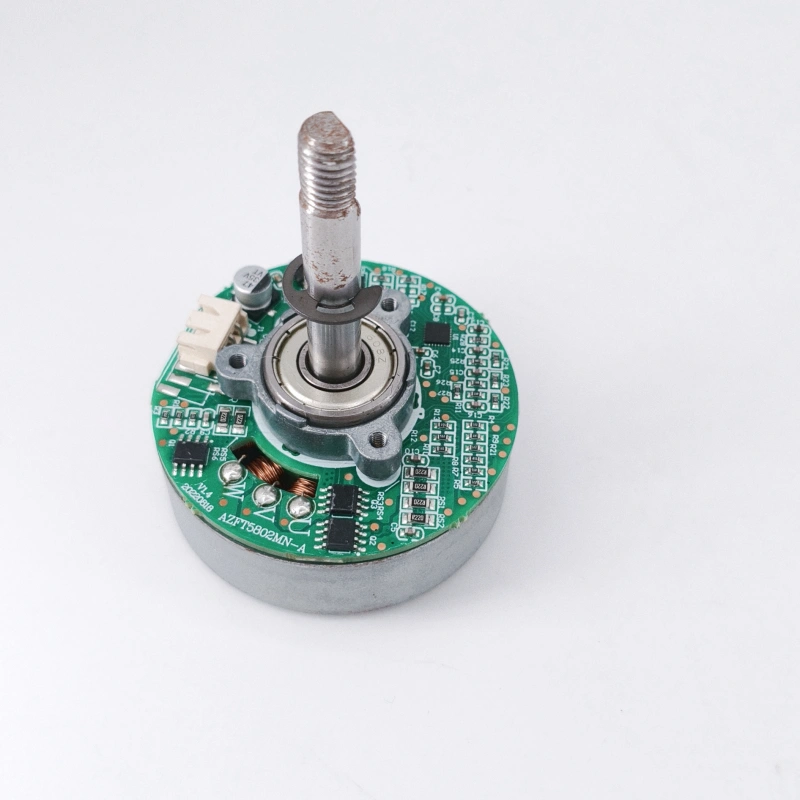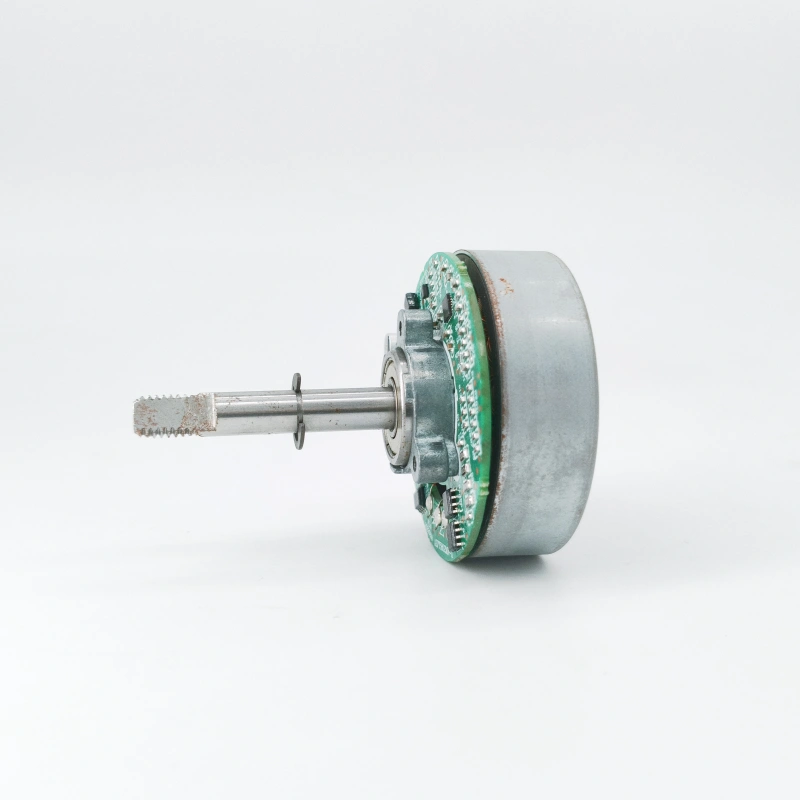DC motors are widely used in scenarios requiring precise power output, thanks to their excellent speed regulation performance and controllability. Their core advantages lie in three aspects: speed control, starting characteristics, and torque adjustment.
1. Core Application Fields
The applications of DC motors cover industries, transportation, consumer electronics, and other fields, especially excelling in scenarios that demand high control precision.
-
Industrial Production Scenarios: This is the most important application field of DC motors, supporting the precise operation of equipment.
- Machine tools: Processing equipment such as lathes, milling machines, and grinders rely on their smooth speed regulation capability. They can adjust the speed according to the workpiece material and processing technology to ensure machining accuracy.
- Conveying and transmission systems: In assembly line conveyors and material elevators, DC motors are used to control the conveying speed, adapting to the rhythm of different processes and avoiding material accumulation or conveying delays.
- Special industrial machinery: Drum drives for printing machines and yarn traction devices for textile machines require stable and adjustable power to ensure uniform product quality.
-
Transportation Field: DC motors are mostly used in vehicles and auxiliary systems that require responsive power and low-speed torque.
- Special vehicles: Electric forklifts, transport vehicles, etc., rely on the high starting torque of DC motors to achieve heavy-load starting and stable low-speed driving.
- Rail transit auxiliary equipment: For door drives and ventilation systems of subways and light rails, small DC motors are used to achieve precise control of door opening/closing and adjustment of ventilation speed.
- Marine and aviation auxiliary devices: Steering gears and windlasses for ships, as well as dashboard drive motors for spacecraft, can provide reliable power in complex environments.
-
Consumer Electronics and Daily Equipment: Miniature DC motors are mainly used here to drive the core functions of devices.
- Household appliances: Fan motors for vacuum cleaners, drain pumps for washing machines, and swing blade motors for air conditioners are small in size and flexible in control, meeting the diverse functional needs of home appliances.
- Portable electronic devices: Cooling fans for laptops, paper-feeding motors for printers, and lens focusing motors for cameras need to operate with low noise and high precision to ensure stable device performance.
- Personal care products: Electric shavers, electric toothbrushes, and small massagers rely on the high speed and small size of miniature DC motors to achieve portable use.
-
Precision and Medical Fields: DC motors provide stable power in high-demand environments.
- Medical equipment: Airflow control motors for ventilators and drive motors for surgical instruments need to operate in a sterile, low-vibration manner to ensure the safety of treatment and surgery.
- Laboratory instruments: Precision stirrers and small centrifuges rely on their low-speed stability to ensure the accuracy of experimental data.
2. Outstanding Advantages
The widespread application of DC motors stems from their irreplaceable performance advantages, especially in terms of control.
- Excellent Speed Regulation Performance: They have a wide speed regulation range and smooth adjustment. Stepless speed regulation can be achieved by changing the armature voltage or excitation current, with continuous and non-jumping speed changes. This allows them to accurately adapt to the speed requirements of different scenarios, which AC motors cannot directly achieve.
- High Starting Torque and Soft Characteristics: DC motors can output high torque during startup, driving heavy-load equipment to start smoothly and avoiding damage to equipment caused by startup impact. At the same time, the speed decreases moderately when the load increases, forming “soft characteristics” that provide a certain degree of protection for equipment and loads.
- Simple and Precise Control: The control principle is clear. Speed and torque adjustment can be realized through simple circuits without complex frequency conversion devices. Moreover, they have a fast response speed and can quickly adjust the output according to control signals, making them suitable for scenarios requiring rapid dynamic response.
- Adaptability to Complex Environments: Small and miniature DC motors have a compact structure and small size, allowing installation in narrow spaces. Some special DC motors can also adapt to extreme environments such as high/low temperatures and vacuums, with strong reliability.




